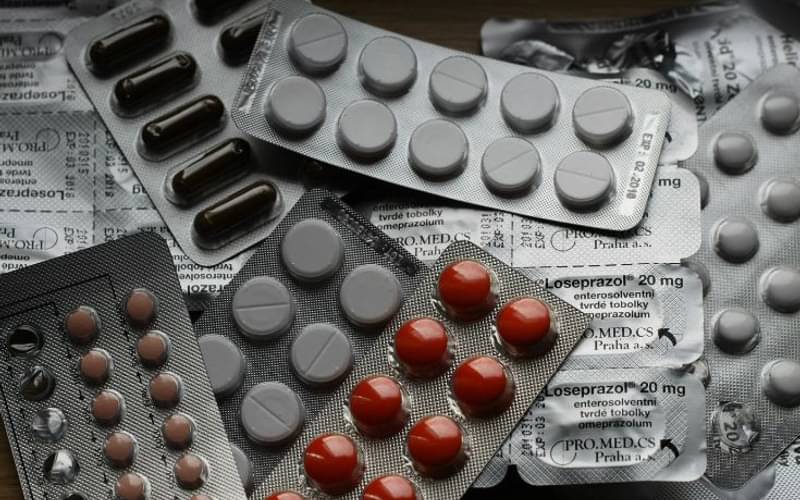Pharma packaging set for a compound annual growth rate of 7.8%
Other than branding, the main purpose of packaging in the pharmaceutical industry is to extend the shelf-life of pharmaceutical products. Avinash Dhanwani highlights trends, regulations, and challenges in the industry
09 Jul 2024 | By Avinash Dhanwani
The pharmaceutical industry plays a pivotal role in the global and regional economies and is constantly experiencing advancements that are shaped by various industry trends and developments. The role of packaging is crucial within the pharmaceutical industry.
In the present scenario, packaging plays an essential role in assuring the safety of patients by displaying vital product information, ensuring tamper resistance, and enabling traceability of goods. Pharmaceutical packaging refers to providing necessary information with convenience, integrity and stability of the pharmaceutical goods.
The Indian pharmaceutical packaging industry was valued at USD 5.96-billion in 2023 and is seeing a compound annual growth rate (CAGR) of 7.8%. The market is valued to grow to USD 12.50-billion in 2033.
With a population of 1.35 billion people, India is the second most populated country in the world. The country’s healthcare infrastructure has developed significantly over the years through various technological advancements and product innovations within the pharmaceutical industry. Despite these improvements, there has been an exponential rise in incidences of chronic diseases within the country.
One of the most notable trends is a rise in the demand for personalised medicines — which contributes to the demand for various drugs. This, in turn, stimulates the demand for advanced packaging solutions. As sustainability regulations are being prioritised, key companies engaged in the pharmaceutical packaging sector are focusing on PCR (post-consumer recycled) materials, bioplastics and various compostable materials to develop innovative packaging solutions that align with the rules. This trend is anticipated to provide lucrative opportunities in the upcoming years.
India is considered to be the third-largest pharmaceutical manufacturer as the country possesses a large raw material base coupled with a skilled workforce within the pharmaceutical sector. The country offers lower manufacturing costs as compared to the developed regions such as North America and Europe. Additionally, the country is considered to be the largest generic medicine supplier across the globe. This aspect has boosted the demand for effective and efficient packaging solutions.
Regulatory associations such as the Ministry of Health and Family Welfare’s Central Drugs Standard Control Organisation (CDSCO) enforce strict guidelines and requirements in terms of traceability, labelling and packaging of raw materials. Beyond the raw materials used, the production or manufacturing process of pharmaceutical packaging is also scrutinised by the regulatory bodies. That’s why manufacturing companies are focusing on developing energy-efficient manufacturing ecosystems across the country.
The trend of user-friendly packaging has been growing significantly within the Indian pharmaceutical industry. This is owing to the rise in the infant population coupled with the elderly population and those with disabilities within the country. Packaging features such as easy-to-tear blister packs, ergonomic bottles and others are becoming more common.
Additionally, the manufacturers within the pharmaceutical industry are also focusing on improving the aesthetic appeal of the packaging product. This is important because it plays a role in brand differentiation and increasing consumer trust. Attractive graphics, high-quality printing techniques (3D printing and digital printing) and premium finishes enhance the perceived value of the product. Furthermore, clear and informative labelling is also necessary as it helps in effective communication with the consumers.
There have been significant technological advancements within the pharmaceutical packaging industry. To tackle the issue of drug counterfeiting and ensuring drug safety, tamper-evident packaging has been in practice recently. The features of tamper-evident packaging include tamper-proof seals, holograms and other necessary features that make it evident whether the package has been altered or opened. This is considered to be necessary as it maintains consumer trust and aligns with the regulatory standards.
Additionally, the integration of technologies such as QR codes, bar codes, NFC tags and others is gaining popularity. These technologies aid the consumers by displaying correct product information, dosage requirements and other relative content within smartphones or other consumer electronic devices.
Smart pharmaceutical packaging also helps manufacturing companies as it provides better inventory management and traceability of the pharmaceutical drugs. Furthermore, to prevent accidental ingestion by children, certain medications are required to have child-resistant packaging in the current scenario — something that is picking up because of regulations, and increased safety concerns among manufacturers and consumers alike. This factor is anticipated to have a positive impact on the market in the upcoming years.
In conclusion, the pharmaceutical packaging industry is currently undergoing transformative changes. The industry's future is being influenced by the trends and developments mentioned above, which present both possibilities and difficulties for companies.
To flourish in an ever-changing and competitive atmosphere, pharmaceutical packaging companies must focus on product innovation and product development while capitalising on advanced technologies, cultivating partnerships, mergers & acquisitions, and strategic alliances within the environment.


